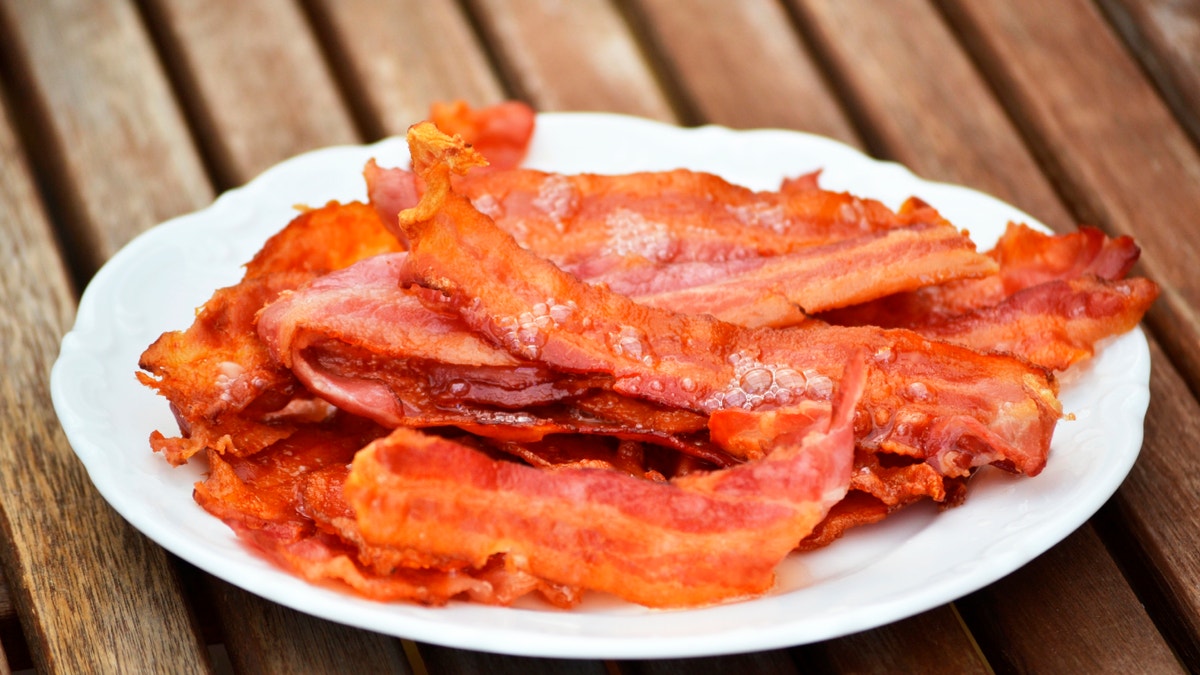
Good news, everyone: Despite all the panic and fear-mongering that's been swirling around everyone's favorite smoky foodstuff, bacon isn't going to kill you. And you don't need to completely ban it from your diet. Really.
Here's what you actually need to know about bacon and cancer, plus how to indulge your craving for the beloved crispy pork strips in a smarter way.
1. Your actual risk for getting cancer from bacon is pretty small.
ICYMI, just because bacon was placed in the same class of carcinogens as cigarettes doesn't actually mean that the two are equally dangerous. Far from it. The World Health Organization ranks carcinogens based on the amount of available evidence linking a substance to cancer—not the amount that the substance actually ups your cancer risk.
MORE: Could New Genetically Modified Potatoes Help Prevent Cancer?
In other words, there are a lot of studies out there that demonstrate eating bacon can increase your odds for getting colon cancer. Apparently, it's about the same number of studies that connect cigarettes to cancer. But out of 100,000 regular bacon eaters, only 120 will actually get colon cancer because of it, says Columbia University oncologist and cancer epidemiologist Dr. Alfred Neugut, PhD. To put that into perspective, out of 100,000 regular smokers, about 1,000 will end up getting lung cancer.
"The evidence has now gotten to be enough so you can say with some definitiveness [that bacon can cause cancer]," Neugut said. "But the actual risk is trivial. If bacon disappeared from America's kitchens, you wouldn't notice a difference in colon cancer rates."
2. And you probably aren't even eating enough bacon to begin with.
Are you chowing down on five strips of bacon every day? Because that's the amount that the WHO says raises your colon cancer risk by 18 percent. Which means that if you're the kind of person who has a couple strips of bacon once or twice a week at brunch or in a BLT, your risk for getting colon cancer is a lot lower.
"I wouldn't say you should eat 10 tons of bacon at every meal. But if you enjoy it in moderation, it's fine," Neugut said.
MORE: 12 Foods That Might Kill You before Bacon Does
3. You can buy cleaner bacon.
Let's get something straight: There's no such thing as truly nitrate- or nitrite-free bacon.
"When [an organic or natural bacon label] says nitrate- or nitrite-free, it means that they're not using synthetic nitrates. Instead, they use celery salt," said Stefanie Sacks, author of “What the Fork Are You Eating?”
MORE: 25 Must-Haves for Your Clean-Eating Grocery List
And while the EPA says that all types of nitrates/nitrites are linked to cancer, Sacks doesn't believe that every nitrate/nitrite is equally awful.
"I'd much rather have my nitrates from celery than from a synthetic source. But they're still highly processed and you should eat them in moderation," she said.
But even if natural nitrates are only marginally better for you than synthetic ones, picking organic—or even grass-fed—bacon is still a cleaner choice. Both are free of nasty antibiotics and hormones, while grass-fed has the added benefit of coming from a pig that wasn't raised on corn or soy.
4. You can cook it cleaner, too.
Charring bacon (or any meat) increases its amount of heterocyclic amines—a group of carcinogenic chemicals that are formed when the amino acids in animal protein are burned. Instead of crisping up your strips in a superhot pan, you can always cook them in the microwave—where they're less likely to burn or char—instead. It won't turn your bacon into a health food, but it will make it a little less bad for you.
MORE: The 6 Biggest Myths About Fat—Debunked
5. The WHO never said that bacon would kill you or that you had to stop eating it anyway.
After the org realized that its initial announcement had resulted in mass chaos, the WHO took the opportunity to clarify its message. In a statement released late last week, it said, "The latest…review does not ask people to stop eating processed meats but indicates that reducing consumption of these products can reduce the risk of colorectal cancer." So there you go. Bacon cheeseburger, anyone?




















